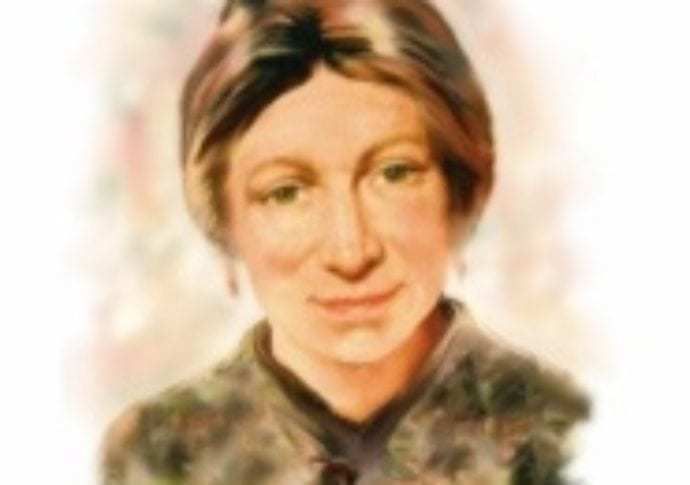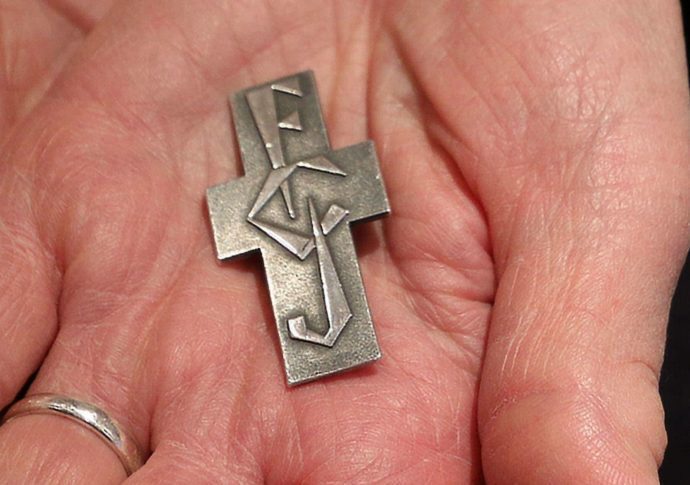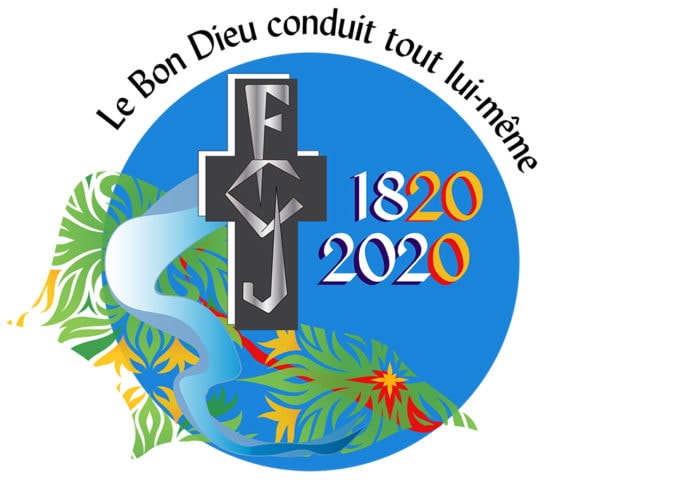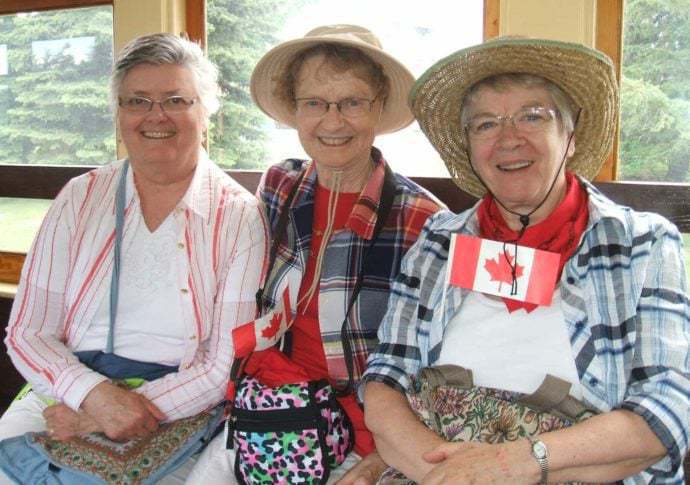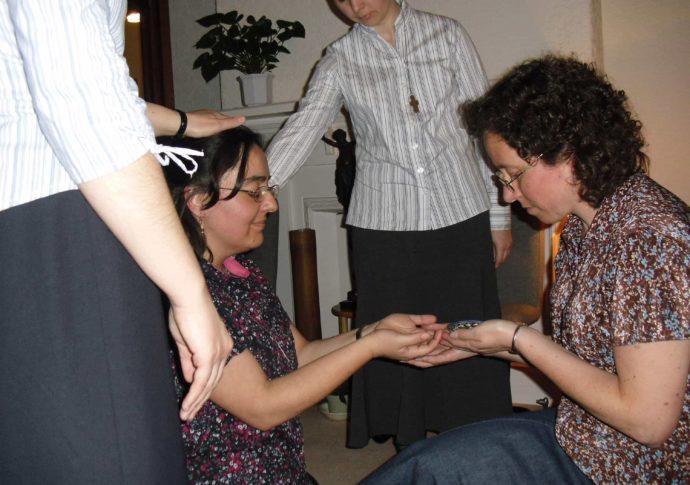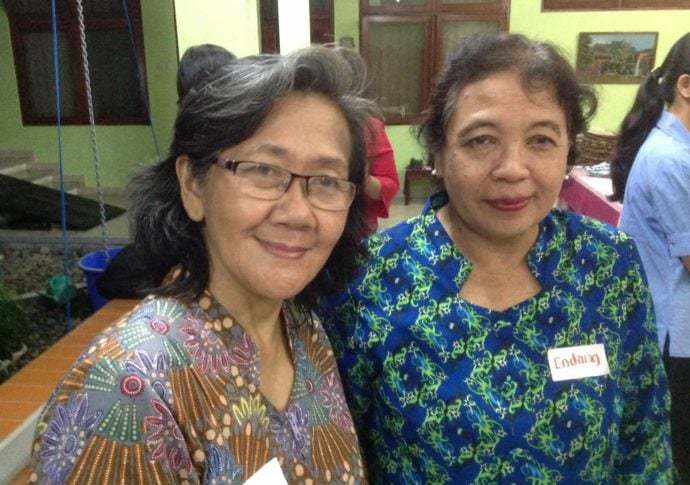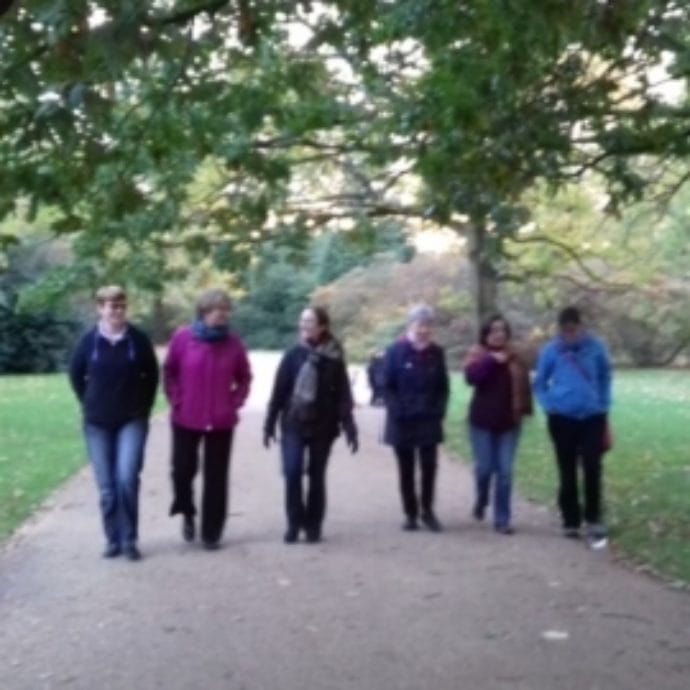Histoire des Fidèles Compagnes de Jésus en Belgique

Histoire des Fidèles Compagnes de Jésus en Belgique
Histoire de la Société FCJ en Belgique
The FCJ Centre of Spirituality in Avenue Winston Churchill is ‘an oasis of peace’ in the heart of Brussels, a place where people meet, share, reflect, pray and find refreshment. This very welcoming and very modern centre offers retreats, workshops and other opportunities to all who wish to enhance the spiritual possibilities of their lives. The centre is the inheritor of a long history of FCJ sisters in Belgium that reaches back for more than a hundred years. This history spans two world wars each of which was to affect dramatically the life and work of FCJ Communities in the country.
The first FCJ residence in Belgium was established in 1902. In October of that year two fcJ sisters, Mother Philomena Higgins fcJ and Mother Magdalen Harding fcJ, travelled to Brussels from Paris and having been welcomed by Cardinal Grossens rented a house in the parish of the Sacred Heart.
This was a foundation that was made in haste and in unusual circumstances. For a number of years the situation in France had become very difficult for the Church and for religious congregations. Already in the late nineteenth century a number of laws had been enacted in France aimed at making it difficult for religious bodies to function. In 1896 primary schools had been secularised and in 1901 the Law Against Religious Associations enacted that no religious group could be set up or function without special decree. In 1904 religious congregations were forbidden to teach and in 1905 came the Law of Separation of Church and State. In the great French campaign for secularisation, Clemenceau is said to have proclaimed war between us is not on the country lanes, it is in the school. Clearly ‘the writing was on the wall’ for religious congregations, especially those involved in education.
Soon, schools run by religious orders in France were being closed by the state and often school property was confiscated. Mother Zoë Girod who was the General Superior of the Society at the time was faced with having to close almost all the Society’s schools in France. Mother Magdalen Harding, resident in Paris at the time writes of the terrible things happening in France and notes, on one occasion, that Mother Zoe is so calm, so resigned, notwithstanding the news that she has just heard – the closing of four of our schools at the same time: Paris, Amiens, Camon and Nice . The sisters needed a place of refuge and they found this in the welcome given to them in Belgium. The rented accommodation in the parish of the Sacred Heart was the base from which arrangements were made for further foundations in Belgium.

By October 1903 a chateau had been purchased in Graty and a school was opened with a little group of sisters and children who had come from France. We are told that very soon Mass was offered to bless the first scholastic year at Graty.
The sisters, having secured a foothold in Belgium acted quickly. Almost immediately a property was purchased in the area of Montjoie, Brussels, with Mother Philomena Higgins fcJ as the first superior. A school was founded and was to grow and expand into the twenty-first century. This school was handed over to the Archdiocese of Malines-Brussels in 1983 and is now a successful co-educational school.

In 1904 just a year after the foundation in Montjoie, houses were purchased in Avenue Longchamps (now renamed as Avenue Winston Churchill). I took refuge here, explained Mother Zoe to put in safe keeping all the papers of the Society and to attend to the business we have here at the moment. Mother Zoe had in effect moved the Generalate from Paris to Brussels. Although this foundation had been made in haste and out of necessity, the house at Longchamps remained the Generalate of the Society until the outbreak of World War II. (The Generalate was subsequently moved to Stella Maris, Broadstairs, England where it was officially established in 1960.)


A fourth Belgian foundation was opened in Namur also in 1904. Here a small group of children from the Paris school formed the nucleus of a third Belgian school.
Because of the expenses being incurred in Belgium and the heavy taxes being levied in the French Republic, the Society was very short of money. It was here that the help of the international FCJ community came into play. The sisters in other countries sent financial help. This enabled the communities in Belgium to continue their work. Particularly touching was the generous financial contribution given by the FCJ community in Calgary in western Canada – at that time, a relatively new mission of the Society.

At the beginning of these troubled times when some communities from France had moved to Belgium, Mother Zoë was hesitant to accept young French women as postulants or novices, given the precarious state of things in France. We shall not accept French postulants, she says, in this time of uncertainty and anguish for France. However, it soon became clear to her that the work in Belgium need not be held back by what had happened in France. She could see that the work of the society in Belgium was beginning to be established in its own right.
In 1909 a Novitiate was opened in the house in Namur for young women interested in religious life. They came from several European countries and beyond. Mother Zoe was concerned about the formation of ‘authentic religious sisters who were generous and ready to do anything. . . not concerned about themselves but letting themselves be directed gently by means of obedience to what God wanted of them.

The history of the Novitiate in Belgium, like much in the life of the early Belgian foundations, was affected by the exigencies of two world wars. The first novitiate opened in Namur in 1909 and continued until 1914 when novices, for reasons of safety, had to be moved to Upton in North West England. After the First World War a novitiate was re-established in Belgium – at Montjoie in Brussels. This novitiate flourished for years and hundreds of young women from around the world retained happy memories of the time they spent in Brussels in preparation for religious life. Alas, the declaration of another war, the Second World War, necessitated the removal of the novitiate once again. In 1939 the Novitiate was removed to Broadstairs in England, this time not to return.

In spite of difficulties occasioned by war, a community of sisters remained in Brussels and the Francophone School at Montjoie continued to flourish.
After the Second World War many changes were taking place in Belgium. In 1960 Zaire (now known as the Congo) achieved its independence from Belgium. Very soon, numbers of English speaking, mainly American Catholics had come to Brussels to enjoy the trading and financial advantages being offered in that city in the wake of the decolonisation of Zaire.

Quite quickly it became evident that a Catholic English-speaking school was needed in Brussels and the FCJ sisters were approached with a view to its establishment. So strong was the interest in the new school, that the Society FCJ agreed to proceed with the venture as an annex to their educational activities at Avenue Montjoie. Thus the new St John’s English-Speaking School was established in 1964 when it opened its doors to 114 students.
The opening of St John’s in Montjoie proved to be the beginning of a much bigger enterprise. Very soon space was at a premium and there was need for expansion. It is recorded that ‘to the surprise and gratitude’ of the development committee, the sisters offered to donate Bella Vista, a summer retreat that they owned at Waterloo in the suburbs of Brussels. This is the original site of the present day St John’s International School which educates students from all over the world.

Although the sisters no longer teach in the school, it still retains its span links with the FCJ society. Speaking of the history of the school Johanna Bambridge, one of the Principals of the junior section of the school, highlighted the continuing influence of the FCJ spirit when she said, ‘decades later that passion energises our outstanding school programme and sustains our commitment to Christian values, academic excellence and cultural diversity.’
 The FCJ Centre of Spirituality in Avenue Winston Churchill is ‘an oasis of peace’ in the heart of Brussels, a place where people meet, share, reflect, pray and find refreshment. This very welcoming and very modern centre offers retreats, workshops and other opportunities to all who wish to enhance the spiritual possibilities of their lives. The centre is the inheritor of a long history of FCJ sisters in Belgium that reaches back for more than a hundred years.
The FCJ Centre of Spirituality in Avenue Winston Churchill is ‘an oasis of peace’ in the heart of Brussels, a place where people meet, share, reflect, pray and find refreshment. This very welcoming and very modern centre offers retreats, workshops and other opportunities to all who wish to enhance the spiritual possibilities of their lives. The centre is the inheritor of a long history of FCJ sisters in Belgium that reaches back for more than a hundred years.





